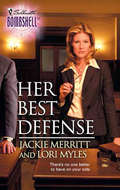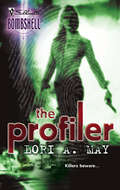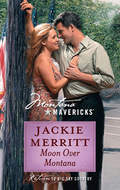Kitap dosya olarak indirilemez ancak uygulamamız üzerinden veya online olarak web sitemizden okunabilir.
Kitabı oku: «The Jinx», sayfa 4
Five
The taxi turned from Eliot Street onto JFK Street, passing the police cars that still swarmed around the Weld Boathouse. We crossed the bridge over the river and made a left onto Storrow Drive.
“What happened back there?” I asked.
“Dunno,” the driver said. “But whatever it is, it’s sure screwing up traffic.”
Unenlightened, I pulled out my phone and dialed Emma’s mobile number. I’d talked to her the previous day, on my way to the airport in New York, but she was my best friend, and we usually talked daily, at least.
It took several rings before Emma picked up, and when she did, she sounded distracted. “Hello?”
“It’s me.”
“Oh, hi, Rach. I’m glad you called. Did you get into town all right?”
“Yes. I’m in a cab on Storrow Drive right now, heading into Boston. Are you at Matthew’s?”
“Yes. He just left for the clinic, and I was about to start on some sketches for a series I’ve been thinking about.” Now I understood the distracted tone. When Emma was starting a new series, her existence bifurcated into two worlds, one filled with ideas and shapes and color, and the other filled with reality. Needless to say, the former usually eclipsed the latter. Emma was a gifted artist, the daughter of a world-famous painter. After a difficult summer, during which she’d narrowly escaped an unfortunate marriage via a set of even more unfortunate circumstances, she seemed to be back on an even keel, happily dating Matthew and climbing to new heights of artistic success.
“Anything interesting?”
“Maybe. It’s too soon to tell.” I could almost feel the effort it took for her to pull her thoughts away from her work and back to our conversation. “But did you say you were going into Boston? I thought you were supposed to be at Harvard, interviewing. What’s in Boston?”
“A memorial service. A client of mine passed away last week.”
“It seems like a lot of people are dying lately,” she mused.
“Like who?”
“Actually, not a lot, I guess. It’s just that a patient of Matthew’s was found murdered yesterday, in Cambridge. And then hearing about your client. It just feels like a lot.”
“What happened to Matthew’s patient?” I asked.
“I don’t know, but the police want to talk to him today. She had an appointment at the clinic a couple of days ago. It probably hasn’t made the New York papers, but there have been six or seven prostitutes murdered in the Boston area over the last year—the police think Matthew’s patient might be the most recent victim.” Matthew worked at a free clinic in a particularly seedy neighborhood in South Boston, so it didn’t surprise me that a prostitute was among his clientele.
“Matthew’s being interrogated by the police?” I commented, amused. Matthew was a skilled doctor and one of the kindest people I knew, but he bore more than a passing resemblance to Shaggy from Scooby Doo, and the mental image of him confronting hardened police detectives was an entertaining one, although he’d managed it with aplomb the previous summer.
“Yes, I know. His second time in six months. He must be getting good at it by now.” Emma laughed at the thought. “On to happier topics, did you have a nice time with Peter last night?”
I thought about last night. And the morning’s shower. “I always have a nice time with Peter.”
“You sound like you’re blushing. Is he still too good to be true?”
“Absolutely,” I sighed blissfully.
“Well, I’m glad to hear you say it. Usually you’re so worried about jinxing everything that you refuse to admit you’re actually happy.”
“You don’t want to mess with the Jinxing Gods.” To tell Emma I was rid of them was a bolder statement than seemed safe. It was one thing to have vanquished them in my mind—it was a wholly different thing to say so aloud.
“There is no such thing.”
“Okay, now you’re just tempting fate.”
“I don’t know if I believe in fate, either.”
“I’m going to pretend you didn’t say that. Next thing I know you’ll be looking for ladders to walk under.” The cab turned off Storrow at the exit for Back Bay. “I should let you get back to work,” I told Emma. “And I’m nearly at the church. But we’ll see you guys tomorrow night, at the kickoff dinner, right?”
“Sure. I’m getting there early to help Jane cook.”
“I wasn’t invited for that part.”
Emma laughed again. “Gee. I wonder why not.”
The taxi deposited me in front of the weathered stone and brick of Trinity Church a few minutes before ten. I joined the slow-moving queue to sign the guest book and then found a seat in one of the ornately carved pews halfway down the nave. The church was packed, which was fitting given Tom’s prominent role in the community. I could barely make out the tops of Barbara’s and Adam Barnett’s heads in the first pew.
The service began, and I alternately stood, sang and sat as directed. The formal rituals that accompanied death always left me numb, and I had a bad habit of automatically tuning out during any sort of lecture. My eyes wandered, taking in the crowd. I recognized both the mayor of Boston and the governor of Massachusetts, along with one of the state’s U.S. senators. Several other faces were familiar to me from Grenthaler board meetings. I looked for Sara, wondering how she was holding up, but I didn’t see her, which wasn’t surprising given the masses of people in the church.
As the minister rambled on, I thought again about Tom and Barbara and their unlikely union. They really could not have been more different—even if you accepted that opposites did, in fact, attract. Tom was descended from a long line of erudite and genteel New Englanders. He had joined the staff of Grenthaler Media as a graduate student in international affairs, intending to work part-time as he pursued his doctorate. Soon he had dropped his classes and joined the company full-time, becoming Samuel Grenthaler’s partner and a significant force in the growing enterprise.
Nancy Sloan theorized that Tom had been slow to marry because he was secretly in love with Anna Porter, the wife of his best friend and partner. He was nearly forty-five when he met Barbara. By then, she’d left her pageant days and an unsuccessful first marriage behind and had moved to Boston with her young son to take a position as the host of a local daytime talk show. A statuesque blonde, perfectly coiffed with the signature big hair of her home state and always dressed in bright Escada or Chanel suits, she was a surprising success in a town that prided itself on its intellectual heritage. But she retired from show business shortly after marrying Tom to dedicate herself to home and family. Nowadays her skin had the tight shiny look that betrayed the attentions of a plastic surgeon, and she maintained her size four with a fierce devotion to exercise and diet, but she was still a stunning presence. Every time I saw her I felt dwarfed and frumpy by comparison and immediately noticed that my stockings had a run or that my nails were a mess. She was also an aggressive extrovert, invariably peppy and talkative and with a Texan drawl that coated her words like syrup.
Her son, Adam, was in his late twenties now, tall and lanky and completely lacking in his mother’s charisma. Tom had formally adopted him soon after he and Barbara married, but there was something nervous about him, as if he never felt that he really belonged. He was a bit of a mama’s boy, too, and he still lived at home, in a third-floor apartment that Tom and Barbara had fashioned into a bachelor pad. I doubted, however, that the pad was seeing much action. I was amazed that he’d actually gotten up the guts to try to romance Sara. It seemed obvious to me that she was way out of his league.
I spied Grant Crocker across the aisle and a few rows up, recognizing him from the rigid set of his broad shoulders and the military-short brown hair. Yet another man who didn’t seem to realize that Sara was way out of his league. He turned and met my gaze, as if he’d felt my eyes on his back. He gave me a friendly but subdued nod before turning back around. I wondered, and not for the first time, how such a handsome boy-next-door face could belong to such a domineering jerk.
After a eulogy from an old friend of Tom’s and a final benediction, the service drew to a close. The guests were invited to the Barnetts’ house for a reception directly following the service. Tom’s body had already been cremated, per his request. The congregation stood to let Barbara and other immediate family pass before we filed out.
Barbara’s blond head was bowed, and she had linked her arm through Adam’s, who guided her dutifully up the aisle. Several older couples followed, whom I imagined to be assorted relatives. Edward and Helene Porter, Sara’s grandparents, were among the group, a stately white-haired pair I’d met at Grenthaler board meetings. Then the other rows began emptying out. I still didn’t see Sara. I wondered if maybe she’d left through another door, wanting to avoid the crush outside.
I’d turned to walk up the aisle when Grant Crocker materialized at my side. “Rachel,” he greeted me, his voice appropriately hushed to reflect our surroundings. “What brings you here?”
“Tom was my client,” I explained, “and Sara Grenthaler and I worked together when she was a summer associate at Winslow, Brown. And I needed to be in town for recruiting, anyhow. How are you, Grant?”
“I’m fine. But this is a sad day.” He put his hand on my elbow as we made our way up the aisle. He’d always been quick to go through the motions of chivalry—opening doors and offering to carry stacks of heavy client presentations—but from him they’d always rankled, knowing as I did that the flip side of his chivalry was chauvinism. And his sanctimonious tone made me wish somebody else was there to hear it, so that we could joke about it later. “I felt it was important to be here,” he added. “For Sara. Since they were so close.” He said Sara’s name with a proprietary air, which I thought was odd given what she’d told me the previous night.
“Have you seen her anywhere?” I asked.
“No. In fact, I was just about to ask you the same thing.”
“We probably missed her in this crowd,” I replied as we emerged from the church into the crisp air. A few flakes of snow had started to fall, precursors of the major storm that was expected that weekend.
“Probably,” he agreed. “Are you going to the reception?”
I made a quick decision. My presence among the several hundred who were likely to descend on the Barnett house would hardly be missed. Nor would it be an appropriate time to discuss Barbara’s ten-percent stake in Grenthaler Media. “No, I’ve got to get back to the Charles. We’re doing the second round of interviews today and tomorrow.”
“I guess I’ll see you at the Winslow, Brown thing tomorrow night, then.” I’d almost forgotten that Winslow, Brown was hosting a cocktail party Friday for the candidates we were asking back to New York as well as previous analysts, like Grant, who had offers outstanding to return to the firm after graduation. I stifled a shudder at the thought of once again having to work with Grant on a daily basis.
“I guess so,” I said, striving to be polite. There was nothing technically wrong with anything Grant had said or done in our brief exchange, but just being around him seemed to rub me the wrong way. I said goodbye, glad to extract my elbow from his grasp and be at least temporarily done with him, and walked down Boylston Street in search of a cab. I found one idling at the corner of Clarendon Street and got in, asking the driver to take me to Harvard Square.
I felt apprehensive, and I tried to figure out why. Clearly, a memorial service was not the most soothing event, nor was it comforting to think about Grant Crocker being back in my life full-time should he return to Winslow, Brown in the fall. But there was something else. I realized that I would have felt better if I’d known for sure that Sara had been at the church. It was strange that neither Grant nor I had seen her. And I couldn’t imagine that she would have missed the service.
I busied myself on the trip back to Cambridge by calling my office to check in with Jessica. I also tried Peter, just to say hello, but his cell phone went straight into voice mail. I left a message then leaned back in my seat, staring out the window. The cab rounded a final curve, zooming past the business school campus to the left and the familiar red brick buildings and cupolas of the undergraduate campus across the river. We turned off Storrow Drive and made a right-hand turn onto the bridge and into an unmoving line of cars.
The driver braked abruptly, cursed at the traffic and added his horn to those that were already honking. After several minutes during which we traveled only a few feet, I paid him and got out. I’d get to the hotel faster by walking. The driver happily pocketed my money and made an illegal U-turn, tires squealing, to return to Boston.
I turned up the collar of my coat against the harsh wind and made my way across the bridge. At its foot, the yellow crime-scene tape remained with its accompanying flock of police cars. Those rowers must have been up to some serious hijinks.
Curious, I stopped to ask one of the uniformed policemen what had happened.
“A young woman was attacked this morning,” he told me.
“Attacked?”
“Uh-huh. In the boathouse. Really early.”
Suddenly, I knew why I hadn’t seen Sara at the church. I felt the blood drain from my face.
Six
I rushed up JFK Street to Mount Auburn, hung a right and sprinted the remaining block to Holyoke Center, which housed University Health Services. The run on the uneven brick sidewalks was no easy feat, dressed as I was in a skirted suit and heels, and the mere act of passing through the building’s entrance instantly brought back unpleasant memories of the times I’d gone there as an undergrad, nursing a bladder infection or something equally embarrassing, but these concerns were eclipsed by my concern for Sara.
Flu season was in full gear, and the clerk at reception was busy with other visitors, but I guessed that Sara would be in the Stillman Infirmary on the fifth floor, so I headed for the elevator bank, punching the call button impatiently. Nobody ever seemed to stop you when you gave off the air of knowing exactly where you were going.
The elevator arrived, and I jabbed at the button for the fifth floor, and then the button to close the doors. The elevator rose at a glacial pace, ticking off each floor with a beep. When the doors finally parted, I strode to the nurses’ station. “I’m here to see Sara Grenthaler,” I announced in my most authoritative tone. While UHS was probably less strict than a normal hospital, I worried that visitors would be restricted to family, of which Sara didn’t have much.
“And you are?” asked the nurse behind the desk.
“I’m Rachel Benjamin. Sara’s cousin.” If you were going to lie, I knew that the only way to do it was simply and with confidence. And there was, after all, a small chance that we were distantly related—her father’s family and my father’s family could have lived in the same Russian shtetl, many generations back, being persecuted by the same Cossacks. It wasn’t a complete lie.
My bluff seemed to work, or it may have been completely unnecessary, because the nurse consulted her computer terminal. “She’s in five-oh-six, ma’am.” I ignored being ma’amed—now was not the time to get hung up on concerns that I’d become prematurely matronly. Instead I hurried off in the direction she’d indicated, counting off the room numbers on either side. The door to Sara’s room was ajar, and I gave it a gentle knock before going in.
She was lying in one of the two hospital beds, and she looked awful. Her head was wrapped in white gauze, and she was hooked up to a variety of tubes and monitors. Her eyes were shut, and her skin was nearly as white as the gauze that framed her face. I let out an involuntary gasp.
“It’s okay. The doctor said she’s going to be all right.” I turned, startled, to the corner, where a young woman rose from a chair. “I’m Edie Michaels,” she said, proffering her hand.
“The roommate,” I answered, putting the name to the face.
“Well, one of them.”
“I’m Rachel Benjamin. From Winslow, Brown.”
“Oh, sure. You had dinner with Sara last night.”
“Yes. So what happened?”
Edie sank back into the chair, running a hand through her mass of curly black hair. Her big dark eyes were worried in her olive-skinned face. “Well, you know how Sara rows every morning?”
I nodded, perching myself on the second, unoccupied bed. “We were just talking about it.” The previous evening suddenly seemed very far away.
“Apparently, she did her workout, and she was putting her scull away when somebody hit her over the head with an oar. A homeless man saw the whole thing—he’d come in to use the bathroom in the boathouse.”
“Did they catch the guy who did it?”
“No, he ran out when he realized he’d been seen. And the homeless guy was too busy checking that Sara was all right to follow him. He’s the one who called the ambulance and the police. All he saw was somebody wearing a ski mask and a big coat with a hood—it was still pretty dark out, and he wasn’t even sure if it was a man or woman.”
“And what did the doctors say?” I asked anxiously.
“They think she’s going to be fine. She has a bad cut on her scalp, and she had to have stitches. They did X-rays and everything, and there’s some swelling, and they said she might have a slight concussion, but they didn’t think too much damage had been done. She was conscious when they brought her in, but she didn’t remember seeing anyone. They gave her a sedative after the stitches, and it knocked her right out.”
“So she really was attacked,” I said in disbelief.
“I know. I can’t imagine who would have done such a thing. It’s so…gritty.”
“Maybe it was a vagrant of some sort? Maybe she surprised somebody who was hiding out there?” There was a pretty sizable and less than mentally stable homeless population in Harvard Square, and I could easily imagine one of them using the boathouse as a temporary shelter and freaking out that his space had been invaded.
Edie shook her head. “I thought that, too, at first. But I’ve been sitting here, trying to figure it out, and I don’t think that makes sense.”
“Why not?”
“If somebody were hiding out there, she would have surprised him when she went into the boathouse in the first place, to get her scull. And if he were going to attack her, why wouldn’t he have attacked her then? But she was attacked when she was leaving.”
“Sort of like someone was waiting for her when she came back from her row?”
“Exactly. Especially when you think about the ski mask. I mean, what sort of random attacker would come equipped with a mask? That sort of thing just screams premeditation.” I recalled Sara mentioning that Edie planned on finding a job in entertainment, and going by her dramatic choice of words, it seemed that she would be well-suited to it.
“And you’re sure it wasn’t the guy who said he witnessed the entire thing?”
“I don’t think so. George, the homeless man, is sort of a fixture around Harvard Square. There’s a shelter at the University Lutheran Church, and both Sara and I have volunteered there. He knew Sara and had talked to her—I mean, it’s not like he’s the most sane person you’ll ever meet—in fact, he’s a total nutcase—but he has no history of violence. If he’d run into Sara, he would have just tried to engage her in conversation of some sort. He thinks he’s a real intellectual, and he’s always trying to debate philosophy or literary theory or whatever with students. He wouldn’t hurt anyone. Bore them to death, maybe, but that’s as bad as he gets.”
“That’s funny. I think I might remember him from my college days.” I hazily recalled a shabby man who would sit in on my English lectures, occasionally posing an interesting and clearly well-informed question.
“Yeah. He’s a bit of a legend around here. Anyhow, the hospital called our room, and I picked up the call and came right over.”
“So it probably wasn’t George.”
“No. I’d be really surprised if it were.”
“Then I wonder who. And why.”
Edie was quiet for a moment. I had the sense that she was taking my measure, wondering if she could confide in me.
“There’s something else, isn’t there?” I asked.
She nodded. “Look, I feel sort of uncomfortable talking about this, but I know that Sara trusts you. And looks up to you.”
The idea of anyone viewing me as a role model was a bizarre one, and coming so soon after being ma’amed, it made me wonder if the time had come to ask my doctor about Botox. “Well, I don’t know about the looking up part, but she can definitely trust me. And you can, too.”
“Okay.” She seemed to make up her mind. “Sara’s been getting these strange letters.”
“Letters?”
“Yes. Like love letters, but sort of sinister. I mean, they’re all flowery and gushy and go on and on about how beautiful she is. But they’re never signed, and there’s no return address or even a stamp or postmark on the envelopes, and they show up in the weirdest places—not just her mailbox at school, but slipped into her bag or a notebook. She once even found one on her bed.”
“Creepy,” I said.
“And invasive. I mean, the letters seem harmless enough—really badly written, but harmless. But when they show up in her personal space, it’s really disturbing. I know it sounds like a cliché, but it’s like she’s being stalked.”
“Does she have any idea who might be sending them?”
“No. Not a clue. We’ve been over and over it, but we just can’t come up with any likely suspects. It would be hard to imagine any of the guys at school writing anything like them, much less giving them to her.”
“But it must be someone who has access to the school—otherwise, how could he get the letters to her? How could he get into your dorm?”
“Well, it’s not like security is that tight. Anyone who looked like he could belong on campus could probably walk around without too much difficulty. And people are always letting people into the dorm, even though they shouldn’t.”
“What about Grant Crocker?” I asked, remembering the odd, proprietary way in which he’d spoken of Sara earlier that morning.
“Sara told you about Grant?”
“Yes. And I knew him from when he worked at Winslow, Brown. He was at the memorial service this morning, and he was asking me if I had seen Sara.” It would be a great way to deflect suspicion from himself, I thought—acting like he was perplexed not to see her at the church, even if he knew exactly why she wasn’t there. My distaste for him made me more than willing to cast him as a creepy violent stalker.
“We talked about it maybe being Grant, but it’s hard to picture. If you could see the letters—they’re not a Grant Crocker type production. I mean, he’s an ex-marine and a fanatical weight lifter—he even takes those weird supplements that build muscle or whatever. But this stuff is really lovey-dovey, and also sort of pretentious with all of these esoteric quotes from various poets. We just couldn’t imagine that Grant had it in him. He’s been a total pain since Sara broke things off with him—he still calls all the time. In fact, he called last night when you guys were having dinner, and he practically had a jealous fit on the phone. But these letters—they’re just not his style.”
“Do the police know about the letters? Did you tell anyone about them? Did Sara?”
“Actually, she did. Just yesterday. I’d been urging her to go to campus security, but she was worried that she’d be overreacting. And the letters weren’t threatening, really, except for being anonymous and showing up in strange places. So she decided to show them to her section leader and get his advice.”
The business school class was divided into sections of about ninety students each. During the first year, students took all of their classes with their sections. It was an interesting arrangement. On the one hand, it allowed students to become comfortable with their peers and thus, in theory at least, more willing to put forth unconventional opinions. On the other hand, by the end of the first year you could pretty much guess what any one of your section-mates would say in answer to any question before he opened his mouth, and you spent a lot of time hoping he wouldn’t open his mouth. A professor was assigned to each section as its leader, acting as an ombudsman of sorts.
“That’s good. What did he say?”
“Professor Beasley said he would take a look and help her figure out whether she should report the letters to campus security.”
“Professor Beasley? Is he new?” The name sounded familiar, but I couldn’t remember a Professor Beasley.
“I think he’s been around for a couple of years.”
“Well, given what happened this morning, it seems like he should definitely tell the police.”
“I think so, too. I was going to go see him later, but I don’t want to leave Sara right now. I called and left a message but he was in class.”
“I’ll tell you what,” I said. “Why don’t I go talk to Professor Beasley?”
“Would you do that? I’d feel so much better if I knew somebody was looking into it, but for all I know, he doesn’t even know what’s happened to Sara yet.”
“Well, I’ll make sure he knows.”
“That would be great,” Edie said, visibly relieved. “I’d just hate to leave before Sara wakes up.”
We exchanged cell-phone numbers so I could call her after I’d spoken to Professor Beasley and she could let me know when Sara awakened.
I called Cecelia back at the hotel as I left UHS, explaining what had happened. It was just after noon, and interviews wouldn’t resume until two o’clock. I hoped that I could get to Professor Beasley’s office, talk to him and make it back to the Charles in time for the afternoon’s interview schedule. I also tried Peter’s cell phone again.
He picked up this time, but he sounded harried.
“Hi, it’s me.”
“Oh, hi, Rachel. What’s up?” His greeting was warm but rushed.
Just as I was about to relate the morning’s events, it occurred to me that given how busy he was, and how stressed, unloading on him right now was probably not the most considerate thing a supportive girlfriend could do. “Nothing,” I said lamely. “Just wanted to say hello.”
“Great. Hi.” I heard a voice in the background, and a trill of female laughter. “Listen, I’m sort of in the middle of something right now. Abigail and I are at her hotel, refining our proposal for this pitch. Things are really heating up. Could I give you a call back later?”
“Um, sure,” I said.
“Okay. Talk to you later.”
I started to ask him about our dinner plans, but he’d already hung up.
I know it was irrational, but I felt annoyed, even while recognizing that there were plenty of times when Peter called me and I couldn’t talk. But the laughter I heard tapped into some well of insecurity in my heart, and the thought of Peter and Abigail working closely together in a hotel room wasn’t a particularly welcome one.
Stop it, I told myself. It’s Peter. You have nothing to worry about. He’s just busy.
With his gazellelike business associate, a mean little voice in my head reminded me. In a private place with a big bed. I shushed the voice, but not before registering a flash of jealousy so intense it made my stomach churn.
I’d reached the river and was passing the boathouse once more. There were only a couple of police cars left now, but the yellow crime-scene tape was still up. I crossed the bridge, leaning into the wind coming off the water and burrowing my hands in my pockets. I tried to take my mind off Peter and Abigail, and instead imagined what Professor Beasley would be like.
Old, I decided. Very old. With a walking stick, bow tie and lockjaw, like the professor in The Paper Chase. But imagining the decrepit Professor Beasley did little to quell the anxiety that my truncated conversation with Peter had stirred. I crossed Storrow Drive to Harvard Street and then took a left onto the business school campus, still wrapped in insecurity and fretting about Peter’s strangely distant tone.
The grounds of the business school looked more Harvard than the college campus on the other side of the river. Here there was even more red brick, and more ivy, with patches of green grass broken by stone paths. A large endowment from corporate donors and successful alumni ensured that everything was maintained beautifully, and every time I came here a new building had risen, doubtless graced with the name of one of those donors. A couple of students walked by me, dressed in suits and overcoats. Judging by their clothes and serious expressions, they were on their way to interviews at the Charles.
I mounted the stone stairs to Morgan Hall, which housed most of the faculty offices, checking the directory in the foyer for Professor Beasley’s office and quickly finding the listing—Beasley, J.—on the third floor. I heard the swoosh of the elevator doors opening behind me and dashed to catch it.
And collided, head-on, with the love of my life.
Ücretsiz ön izlemeyi tamamladınız.








